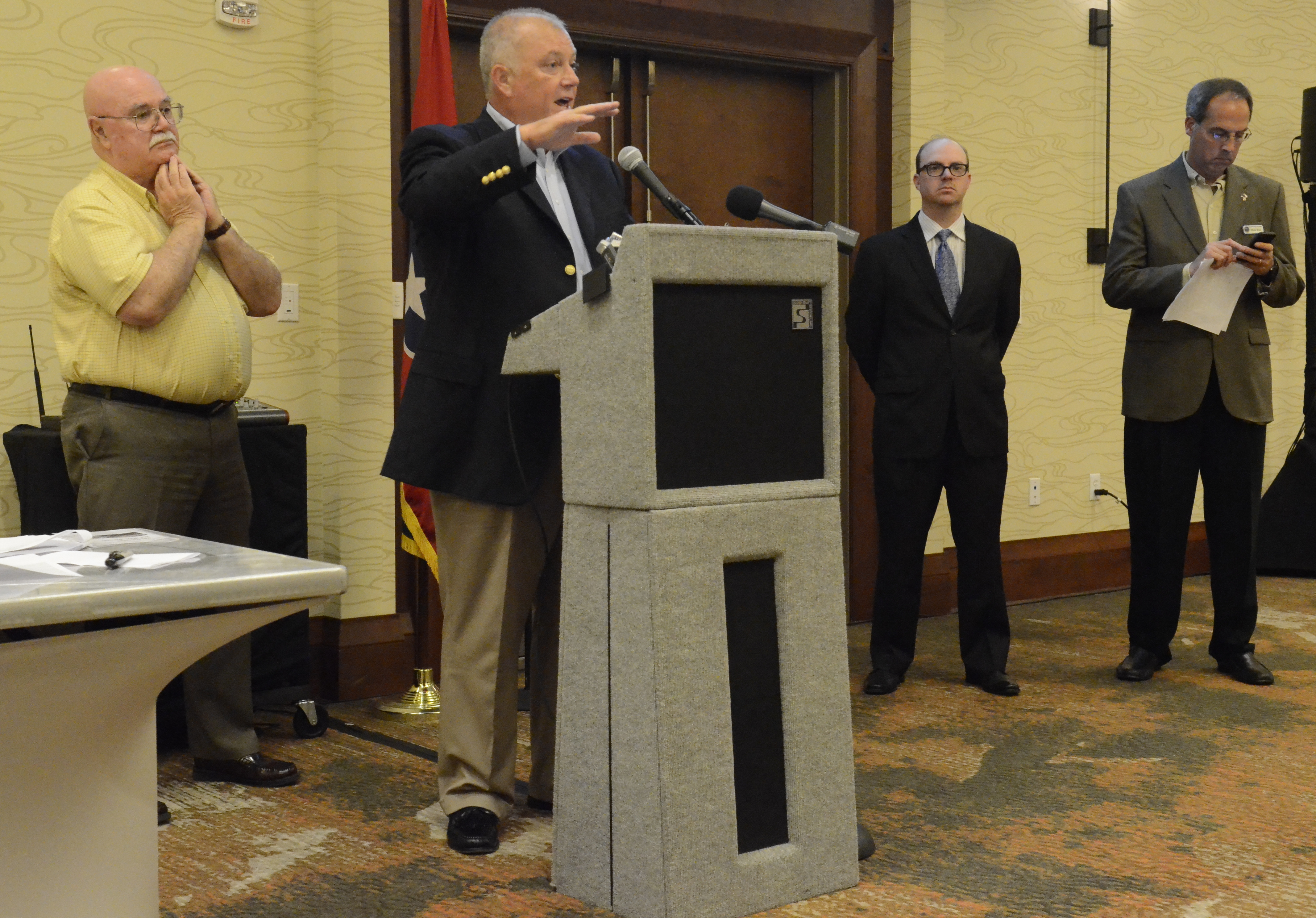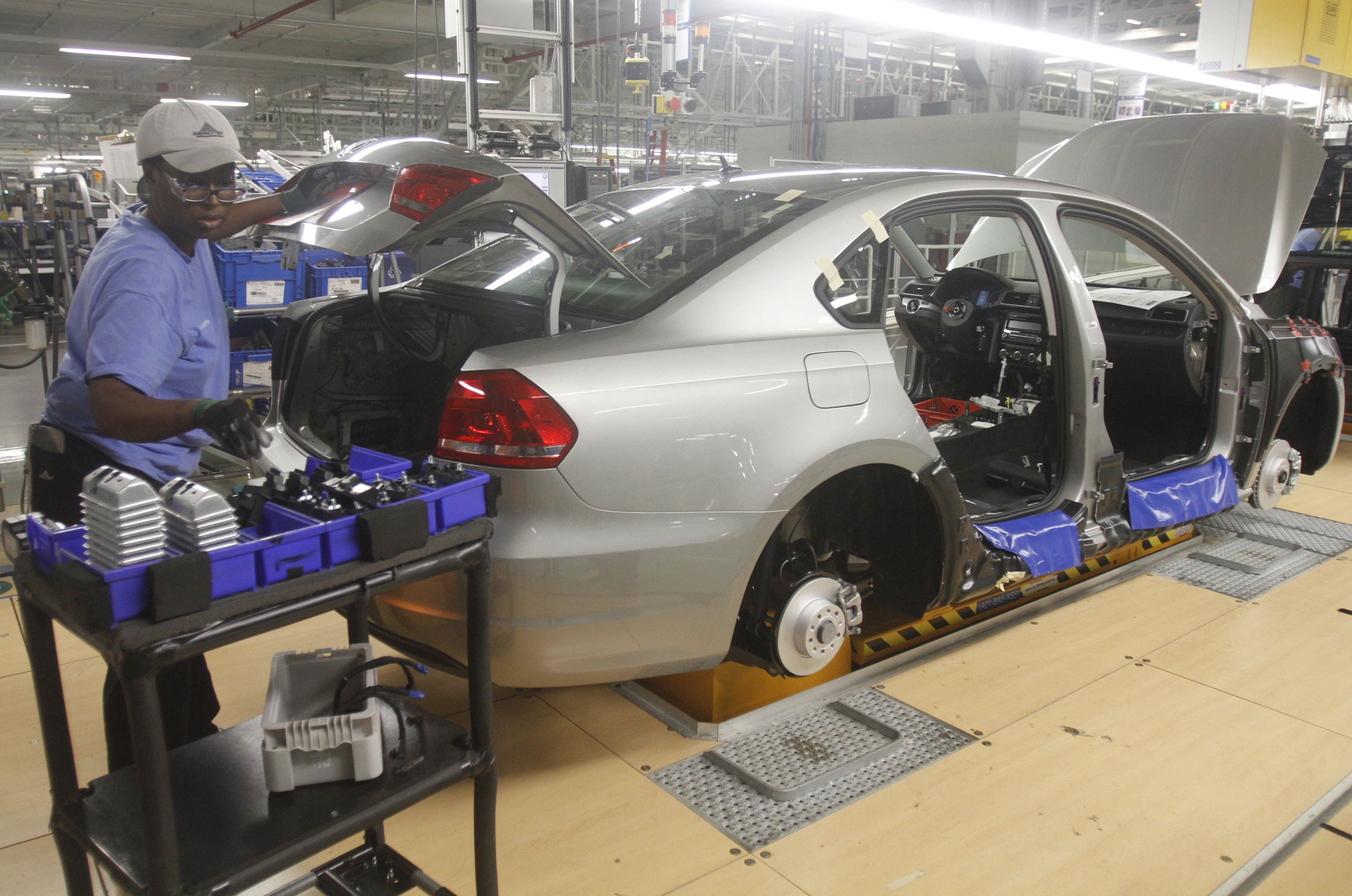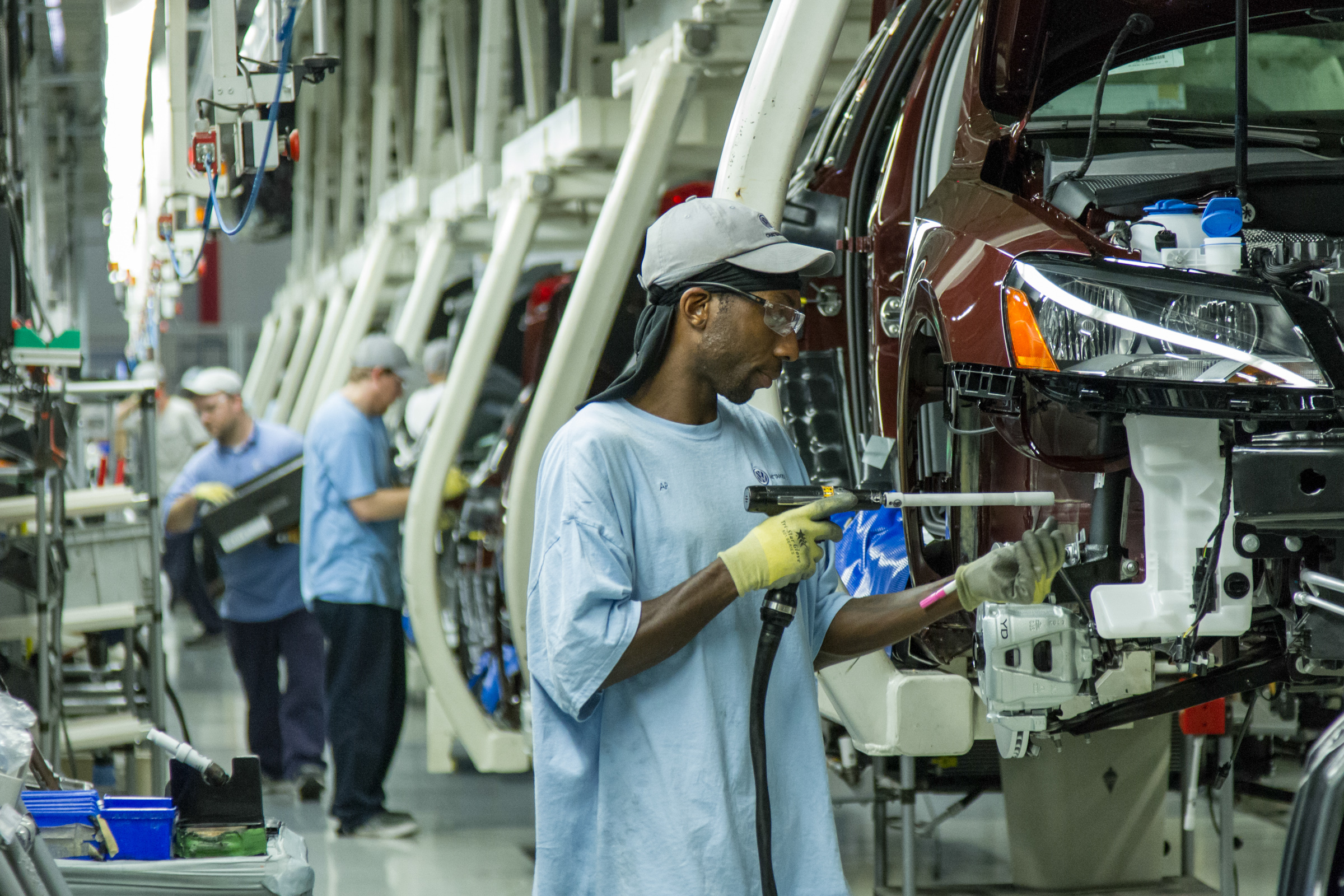Chattanooga Volkswagen plant vote will settle UAW question
Tuesday, February 4, 2014
Charges and counter-charges flew Monday over the fairness of a three-day election next week in which workers at Chattanooga's Volkswagen plant will decide whether to join the United Auto Workers and climax a yearlong union organizing effort.
Volkswagen, not the UAW, filed for a National Labor Relations Board-conducted vote at the factory in which about 1,600 hourly employees will cast secret ballots Feb. 12-14.
Anti-union supporters charged that VW and the UAW are colluding to steer the results in the union's favor by not permitting workers against the organizing campaign to access fellow plant employees in groups.
"We're being railroaded," said VW employee Mike Burton, who has circulated anti-UAW petitions. "We're angry we're not being given a fair say."
But Gary Casteel, a UAW regional director, said that anti-union groups historically have taken the position that the companies own the facilities and are under no obligation to allow unions, and those entities that support them, into their plants.
"Why now do they assert the company is under some obligation to allow anti-groups in?" asked Casteel in an email.
Lon Gravett, a VW employee who supports the union, said he thinks workers are already informed.
"It's to the point where the rubber meets the road," he said. "It's time to be heard."
VW said in a statement that a secret ballot election will lead to the set-up of a German-style works council, which can represent both blue- and white-collar employees on issues such as safety, training and work hours.
If workers OK the UAW in the vote, the election will mark the first time a foreign-owned auto assembly plant in the South has been unionized. That would be seen as creating momentum for the union to organize other Southern auto plants belonging to Mercedes, Nissan, BMW and others.
Frank Fischer, VW's chief executive in Chattanooga, said the German carmaker is "committed to neutrality" during the election period and called on third parties to honor that principle.
"Volkswagen Group of America and the UAW have agreed to this common path for the election," he said.
Sebastian Patta, the Chattanooga operations' vice president for human resources, said employees have the right to decide the issue in a secret-ballot election.
"Volkswagen respects this democratic right," he said.
The UAW had wanted VW to simply recognize the union based on what it said was a majority of authorization cards signed by workers.
Bob King, the UAW's president, said Monday in a speech in Washington, D.C., reported by Reuters that the union cannot go the route of certification by VW because of what he called sabotage by "right-wing" anti-union forces.
"Volkswagen is known globally for its system of cooperation with unions and works councils," King said. "The UAW seeks to partner with Volkswagen Group of America and a works council to set a new standard in the U.S."
VW has works councils at all its major plants worldwide. The automaker has said that a union is required to establish such a panel to comply with U.S. labor law. The union would bargain over issues such as pay and benefits for employees.
However, top political leaders in Tennessee, such as Gov. Bill Haslam and U.S. Sen. Bob Corker, have said that approval of a union at VW will hurt economic development in the state.
Ron Harr, CEO at the Chattanooga Area Chamber of Commerce, agreed.
"We remain concerned a UAW presence will make it harder to recruit other auto-related companies to the area," he said.
 Former VW executive Don Jackson answers questions in July, 2013, during a public meeting at the Embassy Suites in East Brainerd. The meeting, put on by Citizens for Free Markets, was related to efforts to set up a works council and United Auto Workers union representation at the Chattanooga Volkswagen plant. Standing with him are other speakers at the meeting, from left, retired professor Dr. Charles Van Eaton, Matt Patterson of the Competitive Enterprise Institute in Washington, D.C., and Mark West, president of Citizens for Free Markets.
Former VW executive Don Jackson answers questions in July, 2013, during a public meeting at the Embassy Suites in East Brainerd. The meeting, put on by Citizens for Free Markets, was related to efforts to set up a works council and United Auto Workers union representation at the Chattanooga Volkswagen plant. Standing with him are other speakers at the meeting, from left, retired professor Dr. Charles Van Eaton, Matt Patterson of the Competitive Enterprise Institute in Washington, D.C., and Mark West, president of Citizens for Free Markets.Outside anti-union groups have rallied to support workers and others against the UAW effort.
The National Right to Work Foundation has provided legal help to anti-union employees, for example.
Mark Mix, the foundation's chief, said he's concerned about a "rapid-fire United Auto Workers unionization election" and potential "backroom deals" cut between VW and the UAW.
"We call on VW to give workers opposing the union equal access and also to release any agreements it has signed regarding what would happen if the UAW union takes monopoly bargaining power over the workplace...," Mix said. "VW workers should be given all the facts before the election so that they can make an informed choice, and we will oppose efforts to stampede them or tilt the playing field."
Chattanooga attorney Maury Nicely, who is supporting a group that includes Burton and others called Southern Momentum, cited a letter sent Monday to VW plant officials requesting access to company facilities and a list of names of employees and their home addresses.
VW said in a response letter denying Burton's request that while workers can solicit and distribute information in nonwork areas on nonwork time, use of company facilities for solicitation is limited to "pre-approved business partners and charitable/volunteer efforts."
The letter from VW to Burton also said that it does not provide employees' personal information except when required to do so by law. VW also denied that representatives of IG Metall, the German union that supports the UAW's efforts, were allowed to meet with Chattanooga plant employees.
Nicely said Southern Momentum is "preparing a campaign to get information to employees any way we can."
Burton added that VW officials in Chattanooga are planning an "all-team meeting" with employees today in which he thinks workers will hear from the UAW.
"That's not fair," he said.
Casteel, however, said the National Right to Work Foundation has always maintained that it is perfectly acceptable for employers to have "union avoidance attorneys on site, to hold mass mandatory anti-union meetings, and conduct one-on-one meetings with employees discouraging union activity and a host of other threatening and intimidating behavior."
"The very rules and methods of engagement NRTW has established to avoid unionization can conversely be used by a company in support of a union," he said. "What cannot be done is to threaten or intimidate [which they normally do] which we nor VW has done or will do."
Casteel said neither VW nor the UAW has done anything not allowed under the National Labor Relations Act "and we certainly do not plan on doing so."
Contact Mike Pare at mpare@timesfreepress.com or 423-757-6318.


